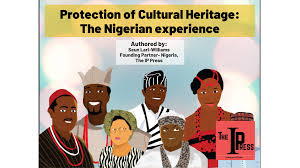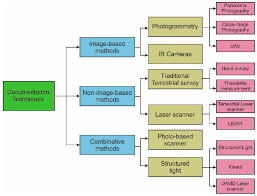

Heritage conservation is an essential aspect of preserving Nigeria’s rich cultural and historical legacy. As the country continues to grow and modernize, safeguarding its historical sites and buildings becomes increasingly important. This article delves into the legal considerations for heritage conservation projects in Nigeria, highlighting the crucial regulations, policies, and legal frameworks that play a pivotal role in protecting the nation’s cultural heritage.
Understanding Heritage Conservation
Heritage conservation involves the preservation, protection, and management of cultural sites, artifacts, and buildings of historical significance. In Nigeria, this includes colonial-era architecture, ancient monuments, traditional structures, and archaeological sites. Effective conservation not only maintains these sites for future generations but also promotes cultural identity and supports tourism.
Legal Framework for Heritage Conservation in Nigeria
Nigeria’s approach to heritage conservation is guided by a combination of international agreements, national laws, and local regulations. Understanding these legal frameworks is crucial for the successful implementation of heritage conservation projects.
1. National Policies and Legislation
a. The National Commission for Museums and Monuments Act (NCMM Act)
The National Commission for Museums and Monuments (NCMM) is the primary regulatory body responsible for heritage conservation in Nigeria. Established under the NCMM Act of 1953 (amended in 2004), the Commission oversees the management and preservation of national monuments and museums. Key provisions of the NCMM Act include:
- Listing and Protection: The NCMM Act empowers the Commission to list and designate heritage sites as national monuments. Once listed, these sites are protected under the Act, and any alterations require prior approval from the Commission.
- Regulations and Guidelines: The Commission issues regulations and guidelines for the conservation and management of heritage sites. These include standards for restoration, maintenance, and adaptive reuse.
b. The National Policy on Culture
The National Policy on Culture, adopted in 1988 and revised in subsequent years, provides a framework for the protection and promotion of Nigeria’s cultural heritage. It emphasizes the need for preserving cultural sites and integrating heritage conservation into national development plans. Key aspects include:
- Cultural Heritage Preservation: The Policy outlines strategies for safeguarding cultural heritage, including funding mechanisms and public awareness programs.
- Coordination and Collaboration: It calls for collaboration between government agencies, local communities, and international organizations to enhance conservation efforts.
c. The Nigerian Urban and Regional Planning Act (URPA)
The URPA governs urban and regional planning in Nigeria and includes provisions relevant to heritage conservation. It emphasizes the need for preserving historical and architectural integrity within urban development plans. Key considerations include:
- Heritage Impact Assessments: Before commencing development projects, assessments must be conducted to evaluate potential impacts on heritage sites.
- Integration with Development Plans: The Act requires that conservation considerations be integrated into urban planning and zoning regulations.
2. International Agreements and Conventions
Nigeria is a signatory to several international agreements that influence heritage conservation practices. These include:
a. UNESCO World Heritage Convention
The UNESCO World Heritage Convention aims to protect and preserve cultural and natural heritage of outstanding universal value. Nigeria’s participation in the Convention obliges the country to uphold international standards for heritage conservation, including:
- World Heritage Sites: Sites inscribed on the World Heritage List receive international recognition and protection. Nigeria has several World Heritage Sites, including the Osun-Osogbo Sacred Grove and the Sukur Cultural Landscape.
- Conservation Standards: The Convention establishes standards for conservation practices, including documentation, restoration, and management.
b. The African Charter on Human and Peoples’ Rights
This Charter, adopted in 1981, includes provisions for the protection of cultural heritage as part of human rights. It supports the preservation of traditional and cultural practices and sites, reinforcing Nigeria’s commitment to cultural conservation.
c. The Hague Convention for the Protection of Cultural Property in the Event of Armed Conflict
This Convention focuses on protecting cultural property during armed conflicts. Nigeria’s adherence to this Convention underscores its commitment to safeguarding cultural heritage during times of crisis.
Legal Procedures and Challenges
Implementing heritage conservation projects in Nigeria involves navigating various legal procedures and challenges. Understanding these aspects is essential for ensuring compliance and success.
1. Obtaining Permits and Approvals
a. Heritage Site Designation
Before undertaking conservation work, it is essential to secure designation and approval from the NCMM. This process includes:
- Site Evaluation: The NCMM evaluates the historical and cultural significance of the site.
- Approval for Alterations: Any proposed alterations or restorations must be reviewed and approved by the Commission to ensure compliance with conservation standards.
b. Building Permits
For conservation projects involving structural modifications, building permits from local authorities are required. These permits ensure that conservation work aligns with urban planning regulations and safety standards.
2. Compliance with Conservation Standards
Adhering to established conservation standards is critical for preserving the integrity of heritage sites. This includes:
- Restoration Techniques: Utilizing appropriate and non-invasive restoration techniques to maintain historical authenticity.
- Material Conservation: Using materials that match the original construction to ensure consistency and longevity.
3. Addressing Property Rights and Ownership Issues
Heritage conservation projects may encounter challenges related to property rights and ownership. Key considerations include:
Land Ownership Disputes: Resolving disputes over land ownership that may affect conservation efforts.
Community Engagement: Involving local communities in conservation projects to address concerns and secure support.
Case Studies and Practical Examples
Examining successful heritage conservation projects can provide insights into effective legal and procedural practices. Examples include:
a. The Restoration of the Aso Rock Monolith
The restoration of Aso Rock, a prominent landmark in Abuja, involved securing permits from the NCMM and collaborating with local communities. The project adhered to conservation standards and integrated modern technology to enhance the site’s visibility while preserving its historical significance.
b. The Conservation of the Zungeru Historical Buildings
The conservation of colonial-era buildings in Zungeru involved navigating property rights and obtaining approvals from various government agencies. The project demonstrated the importance of comprehensive planning and stakeholder engagement in preserving historical architecture.
Conclusion
Legal considerations for heritage conservation projects in Nigeria are integral to preserving the nation’s cultural and historical assets. Navigating national policies, international conventions, and legal procedures ensures that conservation efforts are effective, compliant, and respectful of Nigeria’s rich heritage. By understanding and addressing these legal aspects, stakeholders can successfully undertake heritage conservation projects that safeguard the nation’s legacy for future generations.
· Heritage Conservation
· National Commission for Museums and Monuments (NCMM)
· National Policy on Culture
· Cultural Heritage Preservation
· Nigerian Urban and Regional Planning Act (URPA)
· Heritage Impact Assessments
· UNESCO World Heritage Convention
· World Heritage Sites
· Cultural Property Protection
· Heritage Site Designation
· Building Permits
· Restoration Techniques
· Material Conservation
· Property Rights
· Community Engagement
Contact Us
Chaman Law Firm today. Our offices are conveniently located in Lagos, FCT Abuja, Ogun State, and the UK. We are readily available to assist you with your legal needs. Whether you require consultation, representation, or ongoing legal support, Chaman Law Firm is your trusted partner.
Call us at 08065553671 or email us at info@chamanlawfirm.com to schedule a consultation.

